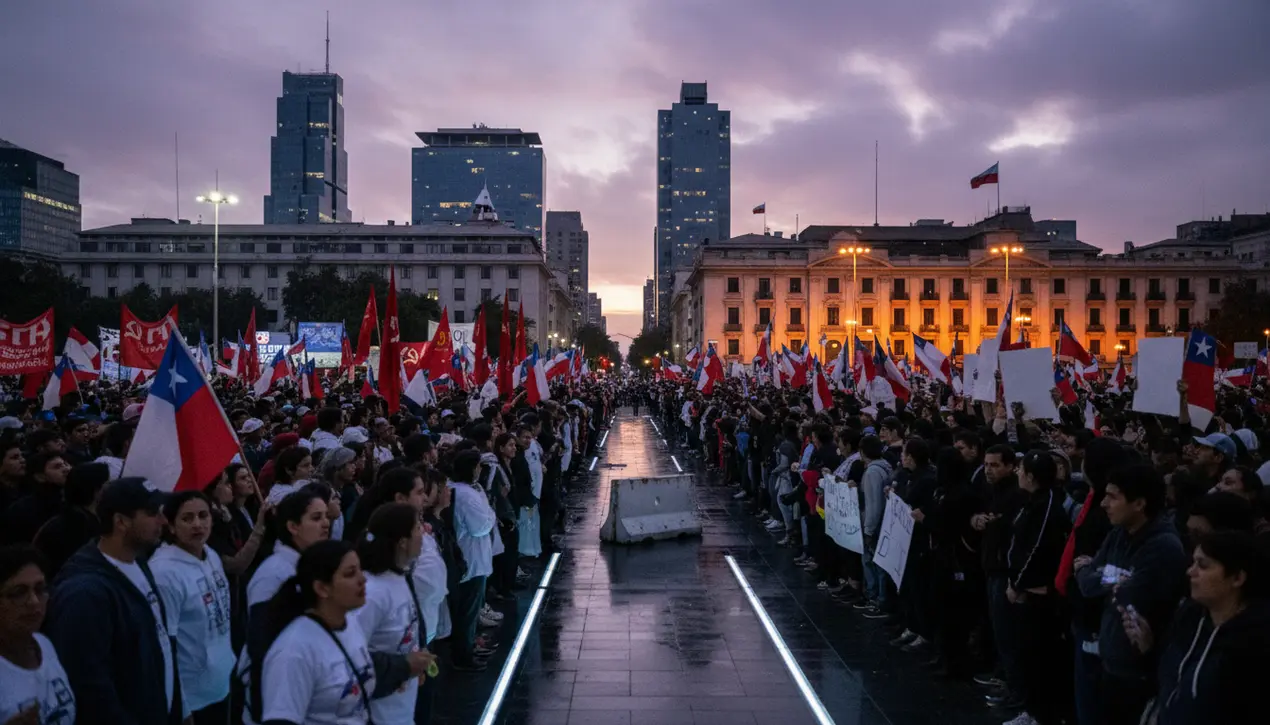
PoliticselectionsPresidential Elections
Chile's Runoff Election Embodies Nation's Deep Ideological Rift
RO
Robert Hayes
2 hours ago7 min read
Chile faces a defining moment in its democratic history as voters prepare for a presidential runoff between communist candidate Jeannette Jara and her far-right opponent, setting the stage for one of the most ideologically polarized elections since the end of Augusto Pinochet's dictatorship. The first-round results, which saw Jara capture approximately 27% of the vote, reveal a nation fundamentally divided over its future direction.This political cleavage has deepened significantly since the 2019 social uprising that triggered a constitutional rewrite process—itself ultimately rejected by voters amid intense ideological conflict. Jara's campaign promises substantial expansion of social programs and structural economic reforms, appealing to citizens disillusioned with Chile's longstanding neoliberal model.Her opponent campaigns on contrasting themes of fiscal discipline, public security, and reversing progressive policies, attracting voters concerned about economic stability. International observers and financial markets are closely monitoring the outcome, recognizing that Chile's decision could influence regional political alignment—potentially strengthening conservative momentum in South America or reinforcing the resurgent left-wing bloc that includes Brazil, Colombia, and Mexico. Beyond policy differences, this election represents a fundamental choice about Chile's identity and its approach to addressing inequality, with consequences that will resonate throughout Latin America's political landscape for years to come.
#Chile
#presidential election
#runoff
#far-right
#communist
#polarization
#Latin America
#featured
Stay Informed. Act Smarter.
Get weekly highlights, major headlines, and expert insights — then put your knowledge to work in our live prediction markets.
Related News
Comments
Loading comments...
© 2025 Outpoll Service LTD. All rights reserved.